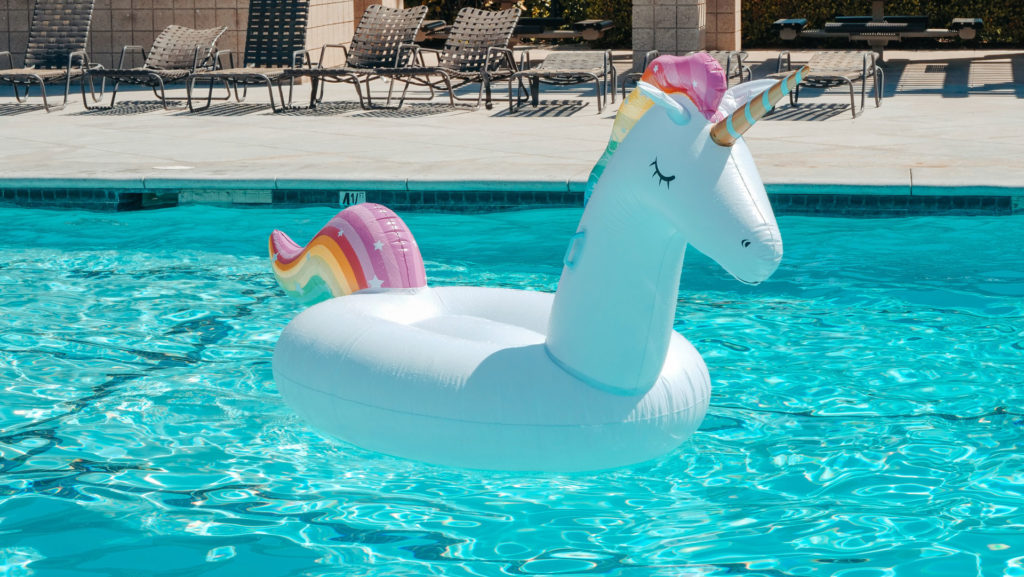A swimming pool accident lawsuit is a claim made against the owner or manager of a pool for an injury that occurred at the facility. In many situations, these claims are wrongful death claims filed on behalf of someone who drowned in the pool or died because of injuries or infection from the pool or spa.
Swimming pool accidents frequently charge that the injuries were caused by someone’s carelessness or that the pool owner should be held responsible under premises liability legislation.
Swimming pool lawsuits generally seek compensation for the following:
- Pain and suffering
- Medical expenses
- Reduced earning capacity or lost wages
- Inability to perform personal hygiene
- Inability to perform normal household duties
Negligent Supervision – A Common Basis
When young child enters a swimming pool, special care must be paid to their safety. Negligent supervision is a common basis for many swimming pool injury lawsuits.
Negligent supervision is when someone who has a legal responsibility to supervise others fails to do so in a responsible manner. This can include a wide range of supervisors, including babysitters, daycare providers, teachers, camp counselors, coaches, nannies, and church youth group leaders. These claims can apply to the supervision of children, the supervision of the elderly, and even the supervision of employees. However, negligent supervision claims are most often linked to the injury of a child.
Common swimming pool injuries
Swimming pools can be dangerous places, especially for children. There are a variety of ways to get harmed in a pool. Some of these injuries are minor:
- Abrasions and scrapes from slipping and falling outside the pool on the deck
- Broken bones, extensive bruising from falling
- Slipping on wet surfaces
However, there are severe injuries or even fatalities that can occur at a swimming pool:
- Drownings due to lack of qualified supervision
- Near-drownings that end with permanent injuries due to lack of oxygen
- Broken spine or neck or other nerve damage from diving
According to the Centers for Disease Control (CDC) (Source https://www.cdc.gov/drowning/facts/index.html):
- More children ages 1–4 die from drowning than any other cause of death except birth defects.
- For children ages 1–14, drowning is the second leading cause of unintentional injury death after motor vehicle crashes.
Every year in the United States there are an estimated (CDC 2019):
- 3,960 fatal unintentional drownings, including boating-related drowning—that is an average of 11 drowning deaths per day.
- 8,080 nonfatal drownings—that is an average of 22 nonfatal drownings per day
Additionally, thousands more are victims of non-fatal accidents or near-drownings that change the course of their life.
Private Swimming Pools and Public Swimming Pools
In swimming pool injury lawsuits, the access to the swimming pool defines how any case can proceed. There are three primary classifications of swimming pools:
- Private property swimming pools and owned and maintained by the owner of the premises are not classified as public
- Commercial swimming pools are pools which are on the property of any business, organization, or group
- Public swimming pools are located on public property and owned and maintained by the local government or one of its agencies, often a parks and recreation department
While the sort of swimming pool will not alter the nature or extent of injuries, it will dramatically impact how a lawsuit proceeds.
Private Swimming Pools Lawsuits
Personal injury lawsuits for accidents that happen in a private swimming pool are filed by the victim against the owner of the pool. In cases where the pool owner has homeowner’s insurance that covers swimming pool accidents, the lawsuit would also be filed against the insurance company.
Lawsuits against private swimming pool owners are often based on premises liability. They claim that the pool’s owner had a responsibility to keep people safe on their property but failed to uphold this responsibility.
Commercial Swimming Pools Lawsuits
Commercial swimming pool lawsuits include those filed against hotels or private companies for injuries sustained in their pools. Landlords may be liable for injuries that occur at apartment complex pools and rental properties.
Similar to private swimming pools, commercial swimming pools are often covered under a premises liability claim against hotels or private companies for injuries sustained in their pools.
Public or Commercial Swimming Pools Lawsuits
Claims filed against a public agency are considerably more difficult because they involve a public facility. Because the lawsuit seeks money from the local government, which is funded by taxes, there are several time-consuming barriers to clear.
Additionally, there are frequently limitations on the amount of money that a lawsuit might obtain. The process is usually significantly longer and will require expert legal guidance.
Is it possible to file a wrongful death claim?
If a swimming pool accident results in death, his or her family or loved ones may bring a wrongful death lawsuit on the victim’s behalf.
Each state has its own statute that governs how wrongful death lawsuits can proceed. California’s wrongful death legislation allows surviving family members or the estate to sue for compensation when a person dies as a result of someone else’s negligence, recklessness, or intentional wrongdoing. (Reference: Code of Civil Procedure 377.60).
Because the aim is to compensate the victim’s loved ones, not the victim directly, many wrongful death laws offer a variety of compensation for successful claims. The following two items are among the most common categories of compensation in a wrongful death case:
- Funeral expenses
- Loss of financial security and the victim’s missed income
Swimming Pool Accidents and Injuries: Seek Qualified Legal Assistance
If you or someone you know has been in a swimming pool accident and has not received proper resolution, you may still obtain compensation for losses. For a free consultation, contact Harsh Law today at (909) 793-6261 or fill out the contact form on this website.



